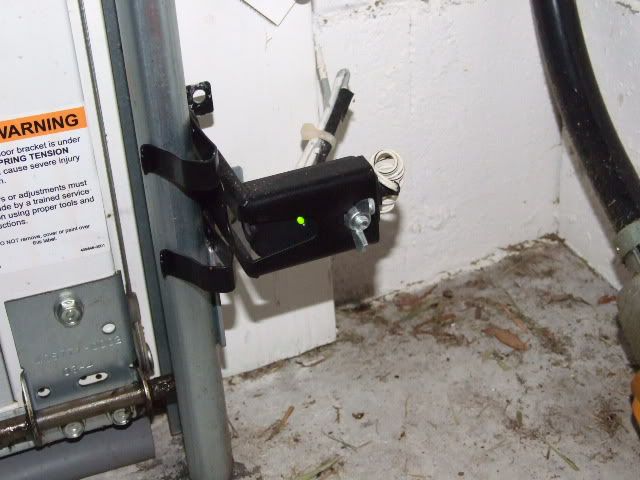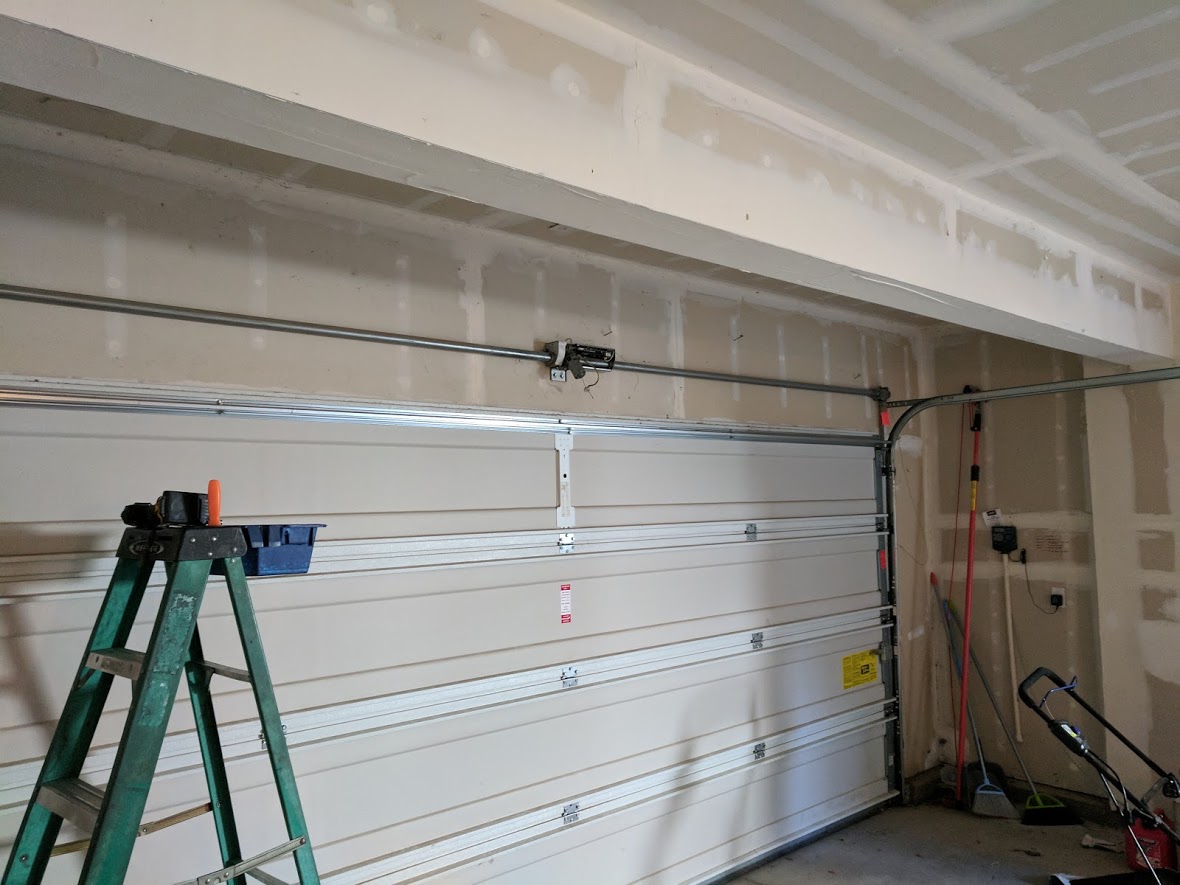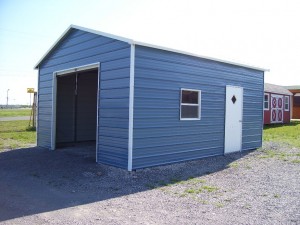
Roll up garage doors can be a great option. They take up very little overhead space, they are insulated and they require minimal maintenance. Plus, there are a variety of styles, materials, and options available. These doors are ideal for commercial and residential applications.
When choosing a roll up door, you need to measure the width and height of the opening, and then select the door you need. Depending on the type of door, you may need to also consider the mounting.
To ensure proper installation, make sure you read all instructions. If you have any questions, you should contact a qualified door agency. Also, make sure to check the packing slip and supplementary drawings.

Be sure to decide whether you want an insulated door or a non-insulated one before you buy a door. Insulated doors are a great way to save energy and reduce noise pollution. Similarly, if you live in a warm or cold climate, you may want to choose a door with thermal break insulation. This is a thermal reflector material that is applied to the door once it is installed.
Roll up doors come in a range of materials like steel, aluminum, wood, fiberglass, or aluminum. Each of these types can be customized and are durable. It is important that the door you choose has quality brackets. However, because of the extreme spring tension, you should never try to install one on your own. This task should be done by an experienced door technician.
These commercial garage roll-up doors are an excellent way to keep outside elements out of buildings. They can withstand severe weather conditions because they are tough and durable. They are also fire-rated and will automatically shut down if they are triggered by smoke. These doors are ideal for any type of business and can be used in residential or commercial settings.
Professionals can adjust the garage roll-up door using the DBCI-exclusive tension bracket without needing to disassemble it. This bracket makes it easier for the professional to readjust the door, which is a critical step in maintaining the integrity of the door. This bracket makes it easier to use the door.

Roll up doors are durable and are available in a variety of sizes. You should consider the dimensions of your garage to determine which type of roll up door is best for you. Residential roll up doors may not be as sturdy as commercial doors but they are cheaper and can be tailored to your specifications.
A roll-up door with a fire rating is a good option for commercial buildings. This feature is designed to prevent fire from spreading throughout your building. It also provides security. It is also a good idea for sealing all edges of the doors, since they can be damaged easily by objects. Also, doors with enclosed features can be purchased if there are extreme temperatures.
FAQ
What is included in a full kitchen remodel?
A complete kitchen remodel involves more than just replacing a sink and faucet. There are cabinets, countertops as well, lighting fixtures and flooring.
Full kitchen remodels allow homeowners to modernize their kitchens without the need for major construction. This means there is no need to tear down the kitchen, making the project more manageable for both the homeowner as well as the contractor.
Kitchen renovations include various services, including electrical, plumbing, HVAC, carpentry, painting, and drywall installation. Complete kitchen remodeling may require multiple contractors, depending on how extensive the renovation is.
A team of professionals is the best way to ensure that a kitchen remodel runs smoothly. There are often many moving parts in a kitchen remodel, so small problems can cause delays. DIY kitchen remodels can be complicated. Make sure you have a plan and a backup plan in case of an emergency.
What order should you renovate an existing house?
The roof. The plumbing follows. The electrical wiring is third. Fourth, the walls. Fifth, the floor. Sixth, the windows. Seventh, the door. Eighth, is the kitchen. Ninth are the bathrooms. Tenth is the garage.
Finally, after all this work is done, you'll have everything you need to get into the attic.
If you don't know how to renovate your own house, you might hire somebody who does. It takes patience, time, and effort to renovate your own home. It can also be expensive. It will take time and money.
Renovations aren’t always inexpensive, but they can make your life easier and save you money in the long term. Plus, having a beautiful home makes life better.
What would it cost for a home to be gutted versus what it would cost to build one?
The process of gutting a house involves removing all contents inside the building. This includes walls, floors and ceilings, plumbing, electrical wiring and appliances. Gutting is done when you want to make some modifications before moving in. It is often very costly to gut a home because of all the work involved. Depending on your job, the average cost to gut a home can run from $10,000 to $20,000.
A builder builds a home by building a house frame-by-frame, then adds doors, windows, doors and cabinets to the walls. This is often done after purchasing lots of land. Building a home can be cheaper than gutting. It usually costs around $15,000-$30,000.
When it comes down to it, it depends on what you want to do with the space. If you are looking to renovate a home, it will likely cost you more as you will be starting from scratch. But if your goal is to build a house, you won't need to disassemble everything and redo everything. You can design it yourself, rather than waiting for someone else.
How can I tell if my house needs a renovation or a remodel?
First, check to see whether your home was updated in recent years. You might want to renovate if you haven’t had any home updates in several years. A remodel may be a better option if your house looks like new.
The second thing you should check is whether your home is in good condition. A renovation may be necessary if your home has holes in its drywall, cracked wallpaper, or missing tiles. But if your home looks amazing, maybe it's time for a remodel.
Also, consider the general condition of your property. Is it structurally sound? Are the rooms well-lit? Are the floors well-maintained? These are crucial questions when deciding on the type of renovation to do.
What is the cost of completely renovating a kitchen?
You might wonder how much it would be to remodel your home if you have been considering the idea.
The average kitchen remodel costs between $10,000 and $15,000. You can save money and still improve your space's appearance.
Planning ahead is a great way to cut costs. This includes choosing a style and color scheme that suits your lifestyle and finances.
A skilled contractor is another way to reduce costs. A professional tradesman knows exactly how to handle each step of the construction process, which means he or she won't waste time trying to figure out how to complete a task.
You should consider whether to replace or keep existing appliances. Replacing appliances can add thousands of dollars to the total cost of a kitchen remodeling project.
In addition, you might decide to buy used appliances instead of new ones. Buying used appliances can help you save money because you won't have to pay for installation.
It is possible to save money when you shop around for materials, fixtures, and other items. Many stores offer discounts for special occasions like Cyber Monday or Black Friday.
What is the difference between renovation and remodel?
Remodeling is the major alteration to a space or a part of a space. A renovation is a minor alteration to a space or part of a place. A bathroom remodel can be a large project while an addition to a sink faucet can be a small project.
Remodeling is the process of changing a room or part of it. A renovation involves only changing a portion of a room. Remodeling a kitchen could mean replacing countertops, sinks or appliances. It also involves changing the lighting, colors and accessories. You could also update your kitchen by painting the walls, or installing new light fixtures.
Statistics
- According to a survey of renovations in the top 50 U.S. metro cities by Houzz, people spend $15,000 on average per renovation project. (rocketmortgage.com)
- Windows 3 – 4% Patio or backyard 2 – 5% (rocketmortgage.com)
- $320,976Additional home value: $152,996Return on investment: 48%Mid-range average cost: $156,741Additional home value: $85,672Return on investment: (rocketmortgage.com)
- 57%Low-end average cost: $26,214Additional home value: $18,927Return on investment: (rocketmortgage.com)
- Following the effects of COVID-19, homeowners spent 48% less on their renovation costs than before the pandemic 1 2 (rocketmortgage.com)
External Links
How To
Are you required to obtain a building permit for home renovations?
Do it right if you are going to renovate your home. Any construction that involves changes to the exterior walls of your home requires a building permit. This includes adding an addition, remodeling your kitchen, replacing windows, etc.
There could be serious consequences if your decision to renovate your house without a building permit is made. If you are responsible for injuries sustained during the renovations, you could face penalties or even legal action.
Most states require all people working on residential structures to have a building permit. A majority of cities and counties require homeowners to obtain a building permit before beginning any construction project.
Most building permits are issued by local government agencies such as the county courthouse, city hall, and town hall. But they can also be obtained online or via phone.
It would be better to obtain a building permit. It ensures that the project is compliant with local safety standards as well as fire codes and structural integrity requirements.
A building inspector will, for instance, ensure that the structure meets current building codes, such as proper ventilation, fire suppression systems and electrical wiring. He also checks the plumbing, heating, and air conditioning.
In addition, inspectors will check to ensure that the planks used to construct the deck are strong enough to support the weight of whatever is placed upon them. Inspectors will look out for water damage, cracks and other issues that could affect the structure's stability.
Contractors can begin renovations once the building permit has been approved. If the contractor does not obtain the required permits, they could be fined, or even arrested.